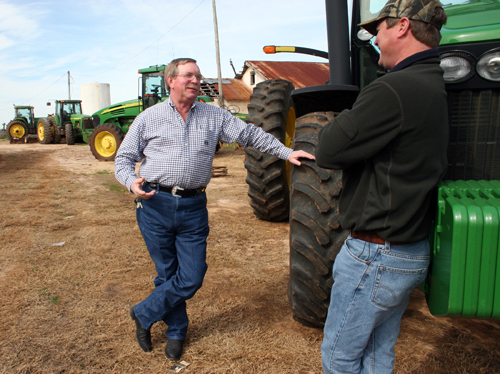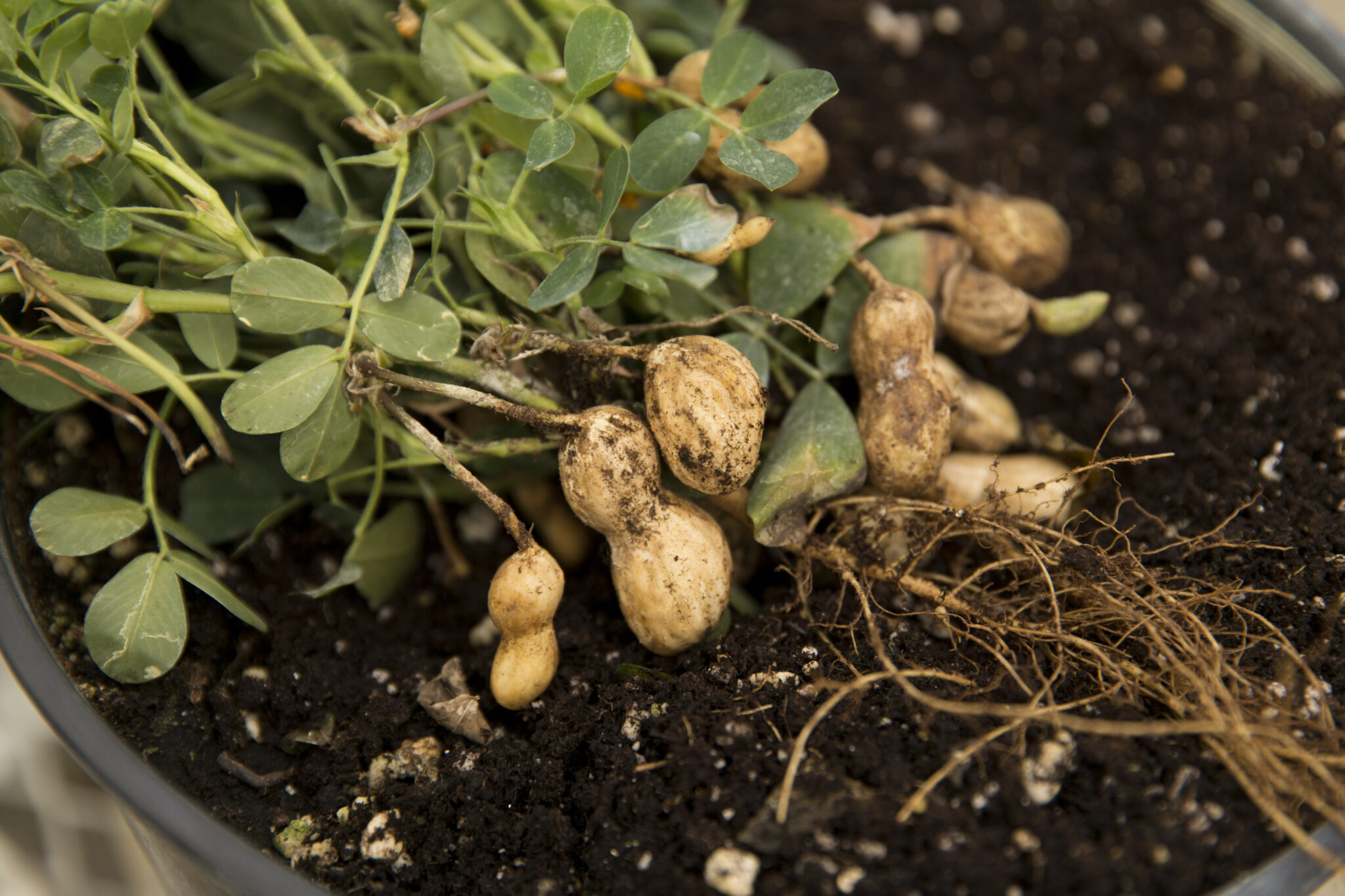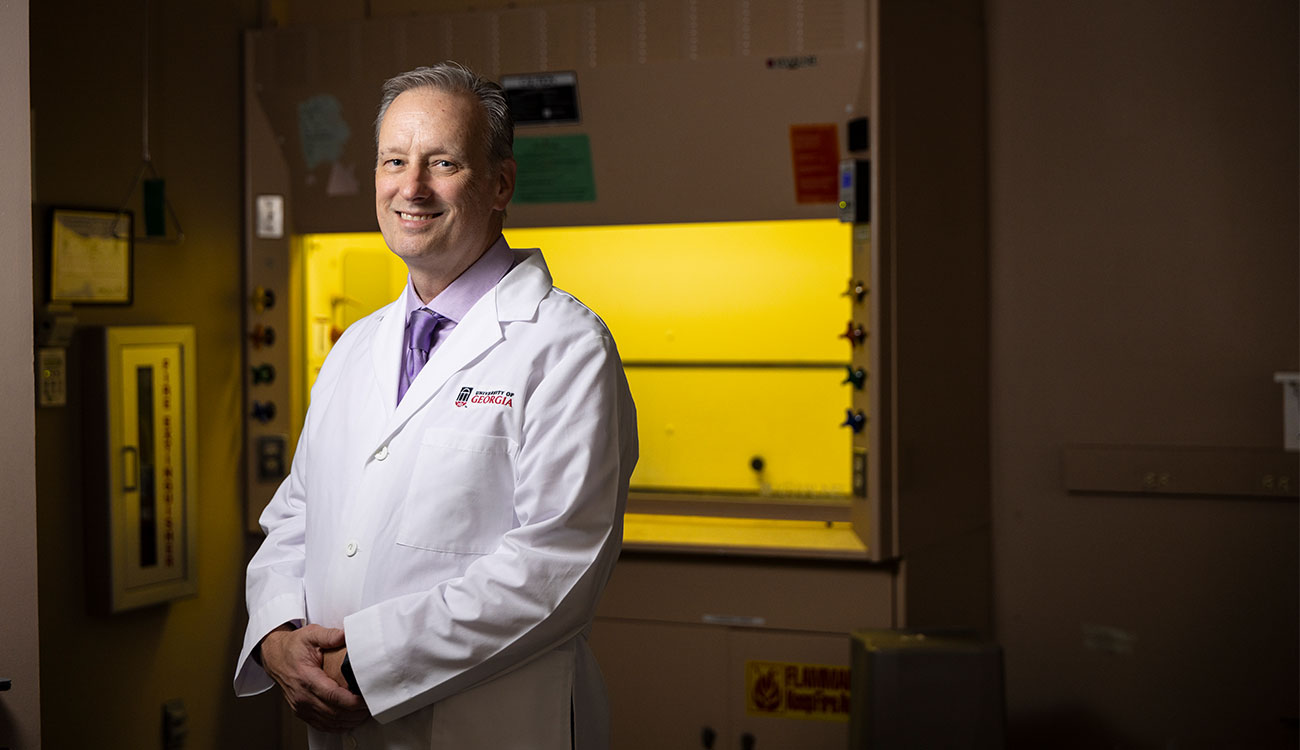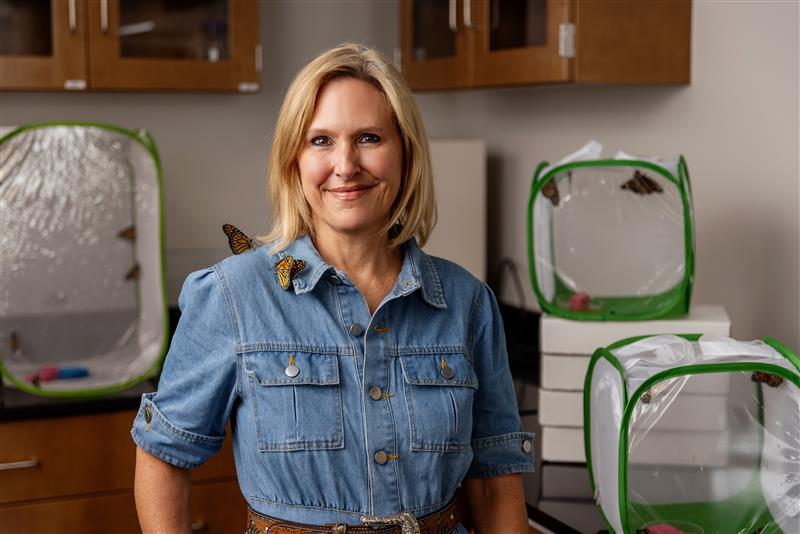University of Georgia research isn’t done just by professors in laboratories in Athens, Ga. It’s also conducted in fields, orchards and gardens statewide by UGA Cooperative Extension agents, who look to solve problems for the people in their counties.
“We’re not trying to split atoms,” said Jenkins County Extension coordinator Wade Parker. “We’re trying to do research that has immediate results for farmers.”
Jenkins County farmers grow a lot of cotton. Parker’s research focuses on what cotton varieties and chemicals will work best for farmers in the south Georgia county.
Offices of help
Statewide, Extension has offices in 158 of Georgia’s 159 counties. “County agents are in a prime position to know the needs and the questions their producers are having difficulty finding answers to, or that there are no answers to,” Southwest District Extension Director Ken Lewis said. “They’re on the ground seeing the problems along with the farmers every day.”
But they’re not alone. Agents often call to get information from Extension specialists (UGA College of Agricultural and Environmental Science faculty with advanced degrees in a particular field) for information.
Sometimes the questions demand more thorough answers. That’s when agents work with specialists to plan research projects, ranging from wine grape disease testing to blueberry replant fumigation trials to organic cover crop seed production to carrot variety trials. Traditional peanut, cotton, soybean and corn trials are the norm.
“I think research goes back to the very core, the very roots of Cooperative Extension,” Lewis said. He calls it a “win, win, win situation” on the part of the agent, farmer and specialist.
Beverly Sparks, associate dean for Extension, sees it as “a two-way exchange.” “The producers see a problem and then bring it to us,” she said. “Then we research it and get the information out there through our agents in a real, applied sort of way.”
More peanuts, more money
In southwest Georgia, Calhoun County Extension coordinator Paul Wigley has worked alongside both Extension specialists and farmers to test more than 40 fungicides in almost 100 different combinations on a multitude of different peanut varieties.
In this project, he looks for fungicides that combat a disease called Rhizoctonia peg rot, which plagues Calhoun County’s 15,000 acres of peanuts. His work adds up to money saved for his farmers, who produce an average of 4,000 pounds of peanuts per acre. Since 2003, the small county has gained $79 million in peanut profits.
“Our job is to provide non-biased, research-based information, and that’s what we’re all trying to do,” Wigley said.
Where’s the beef?
Wigley’s counterpart in Upson County, Extension coordinator Wes Smith, works with beef cattle producers, many who work day jobs and spend their off time as cattlemen.
Juggling two jobs is challenging enough, and lately Smith’s producers have experienced the added curveball of rising fertilizer costs. Smith shows his producers how incorporating legumes into a forage program can do two things: reduce nitrogen requirements and increase forage quality.
“It’s something I can do and my county folks will see the benefits,” he said.
He’s also studied whether cows will eat mown Bermuda grass. “We let them onto the plot a month to six weeks before they calve and let them harvest their own hay,” Smith said. Using this method allows producers to save $40 per cow per year, which can add up to more than $150,000 in savings per year across the county.
Research center
Across the state, CAES has eight research and education centers in addition to specialists and researchers located on the UGA campuses in Athens, Griffin and Tifton, and on the Georgia Southern University campus in Statesboro.
At the Southeast Georgia Research and Education Center in Midville, agents conduct additional “on-farm” research. Center superintendent Anthony Black matches them up with specialists who have expertise in the areas they’re working in. The primary crops tested there are cotton, peanuts, soybeans and corn. Other trials include a small grain variety test and a biofuels project.
“The Extension agent research is particularly interesting to me because it’s so easy to transfer to the farm,” Black said. “A farmer can drive up here and see something that could be on his farm in a week if he wanted it to be.”








